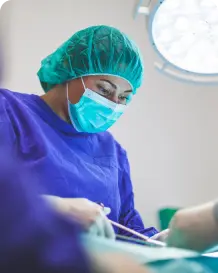Perianal Abscess Treatment/Surgery in Chennai, Causes, Treatment, Preventions
An abscess near your anus or rectum is known as a perianal abscess, also called an anal or rectal abscess. It is a painful lump that most often occurs due to clogging of the anal glands. Find out about perianal abscess treatment/s... An abscess near your anus or rectum is known as a perianal abscess, also called an anal or rectal abscess. It is a painful lump that most often occurs due to clogging of the anal glands. Find out about perianal abscess treatment/surgery in Chennai. Read more
Latest procedures
 50+
50+
Expert surgeons
Personal Assistance







